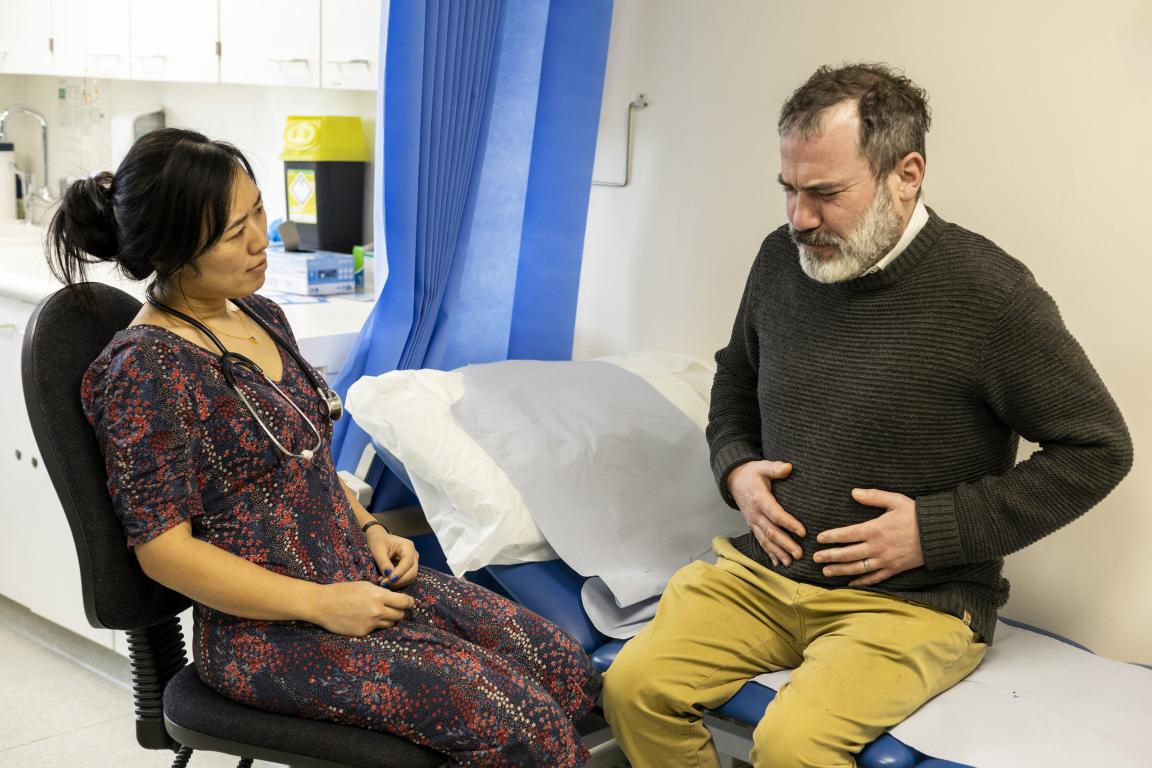Bio-degradable cards
Every card imaginable!
|
Bio-degradable cards Every card imaginable! Understanding IBD: Common Questions Answered
Symptoms and Diagnosis of IBD
What are the main symptoms of IBD?The most common symptoms of IBD include abdominal pain, cramping, diarrhoea (sometimes with blood), fatigue, weight loss, and a general feeling of being unwell. These symptoms can vary in severity depending on the individual and whether the disease is active or in remission.
How is IBD diagnosed?Diagnosing IBD often requires several tests, as the symptoms can overlap with other digestive conditions. Doctors typically use a combination of blood tests, stool tests, colonoscopy, and imaging studies such as MRI or CT scans to confirm the diagnosis and identify whether it’s Crohn’s disease or ulcerative colitis.
Is IBD the same as IBS?No, IBD and IBS (Irritable Bowel Syndrome) are different. While both affect the digestive system, IBD involves inflammation of the bowel and is considered a more serious condition. IBS does not cause inflammation, ulcers, or damage to the bowel, but it does lead to symptoms like bloating, cramps, and changes in bowel habits.
Can children develop IBD?Yes, IBD can affect individuals of any age, including children. In fact, around 25% of people diagnosed with IBD are diagnosed before the age of 20. Paediatric IBD can present additional challenges due to growth and development issues.Living with IBD
How can diet impact IBD?Diet plays a significant role in managing IBD symptoms, although it does not cause the disease. Certain foods may aggravate symptoms during flare-ups, while others may be more tolerable. It’s important for people with IBD to work with a healthcare professional, such as a dietitian, to develop a personalised nutrition plan.
Is stress linked to IBD flare-ups?While stress doesn’t cause IBD, it can exacerbate symptoms and lead to flare-ups. Stress management techniques such as meditation, exercise, and therapy can be beneficial in helping individuals with IBD manage their symptoms more effectively.
What treatments are available for IBD?IBD treatments focus on reducing inflammation and controlling symptoms. These can include anti-inflammatory drugs, immune system suppressors, biologics, and, in some cases, surgery. The treatment plan is usually tailored to each patient based on the severity of the disease and how it responds to different therapies.
How can I manage fatigue related to IBD?Fatigue is a common symptom for people with IBD. Managing it involves ensuring good nutrition, staying hydrated, getting enough rest, and working closely with your healthcare team to adjust medications if needed. Exercise, while sometimes difficult during flare-ups, can also help improve energy levels over time.Complications and Risks of IBD
Can IBD lead to other health complications?Yes, IBD can cause complications both within and outside the digestive system. Complications include strictures, fistulas, and an increased risk of colon cancer. Outside the GI tract, it can affect joints, skin, eyes, and even cause liver problems. Regular monitoring and treatment are essential to minimise these risks.
Is IBD hereditary?There is a genetic component to IBD, meaning it can run in families. Having a close relative with IBD increases your risk of developing the condition, although other factors like environment and immune system function also play a role.
How does IBD affect mental health?Living with a chronic condition like IBD can significantly impact mental health. Anxiety and depression are more common among people with IBD, particularly during periods of active disease. It’s important for individuals to seek support from mental health professionals and peer groups.
Can IBD affect fertility and pregnancy?For most women with IBD, fertility is not significantly affected unless they’ve had surgery. However, active disease during pregnancy can lead to complications such as preterm birth or low birth weight. It’s essential for women with IBD to discuss their condition with a healthcare provider before planning a pregnancy to ensure the disease is well-controlled.Long-Term Outlook for IBD Patients
Can IBD be cured?At present, there is no cure for IBD, but treatments are available to manage the disease and reduce inflammation. Many people with IBD can achieve long periods of remission, where they experience few or no symptoms.
What is the difference between Crohn’s disease and ulcerative colitis?Crohn’s disease can affect any part of the gastrointestinal tract, from the mouth to the anus, and often involves deeper layers of the bowel. Ulcerative colitis, on the other hand, is confined to the colon and rectum and usually affects only the innermost lining of the bowel.
Can lifestyle changes help manage IBD?Yes, alongside medical treatment, lifestyle changes can help manage IBD symptoms. Regular exercise, stress reduction, quitting smoking, and following a healthy, balanced diet tailored to your needs can all contribute to better symptom management.
Will I need surgery if I have IBD?Not everyone with IBD will need surgery, but it may be necessary if medications aren’t controlling the disease or complications develop. In Crohn’s disease, surgery may involve removing the damaged portion of the bowel. In ulcerative colitis, a colectomy (removal of the colon) might be considered in severe cases.
© 2024 The Card Project Uk Ltd
VAT: 453 2087 06
|